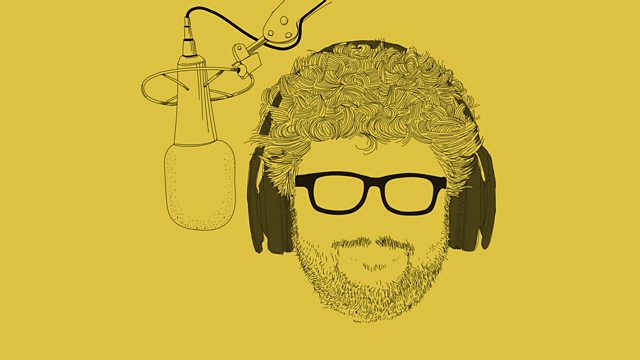Extreme Classical!
What are the most extreme pieces of classical music ever written? And is today's shock-of-the-new tomorrow's old hat?
What are the most extreme pieces of classical music ever written? And is today's shock-of-the-new tomorrow's old-hat?
Tom Service looks some of the longest, the most apocalyptic, the weirdest and the most expensive music ever written - what were the composers up to, exactly? And where do we go from here?
Last on
More episodes
Music Played
-
![]()
John Cage
ASLSP for piano or organ
Performer: Gery Verkade.- MODE.
-
![]()
Alexander Scriabin
Mysterium
Performer: Ostankino Radio Chorus. Performer: Russian State Symphony Orchestra. Performer: Igor Golovchin.- Triton.
-
![]()
Richard Strauss
4 Letzte Lieder for voice and orchestra (AV.150), no.3; Beim Schlafengehen
Performer: Jessye Norman. Performer: Gewandhausorchester Leipzig. Performer: Kurt Masur.- Philips.
-
![]()
Karlheinz Stockhausen
Helikopter-Streichquartett
Performer: Arditti Quartet.- Montaigne.
-
![]()
Johann Sebastian Bach
The Art of Fugue
Performer: Rachel Podger. Performer: Brecon Baroque.- Channel Classics.
-
![]()
Wolfgang Amadeus Mozart
Symphony no. 40 (K.550) in G minor, 4th movement; Allegro assai
Performer: English Baroque Soloists. Performer: Sir John Eliot Gardiner.- Philips.
-
![]()
Johannes Brahms
Piano Concerto No. 1 In D Minor, Op.15
Performer: Paul Lewis. Performer: Swedish Radio Symphony Orchestra. Performer: Daniel Harding.- Harmonia Mundi.
-
![]()
Ludwig van Beethoven
Symphony no. 3 (Op.55) in E flat major "Eroica", 1st movement; Allegro con brio
Performer: Berliner Philharmoniker. Performer: Claudio Abbado.- DG.
-
![]()
Richard Wagner
Tristan und Isolde - Prelude
Performer: Chicago Symphony Orchestra. Performer: Daniel Barenboim.- Teldec.
-
![]()
Anton Bruckner
Symphony no.7 in E major (3rd mvt)
Orchestra: Gewandhausorchester Leipzig. Conductor: Andris Nelsons.- DG.
-
![]()
Hector Berlioz
Symphonie fantastique, Op.14 - 5th movement: Songe d'une nuit du Sabbat
Performer: Anima Eterna. Performer: Jos van Immerseel.- Zig Zag Territories.
-
![]()
Giuseppe Verdi
Nabucco - Va, pensiero, sull'ali (Chorus of the Hebrew Slaves)
Performer: Santa Cecilia Chorus and Orchestra. Performer: Carlo Rizzi.- Teldec.
-
![]()
Arnold Schoenberg
5 Orchestral Pieces, Op.16
Performer: London Symphony Orchestra. Performer: Robert Craft.- Koch International Classics.
-
![]()
Igor Stravinsky
The Rite of Spring: - Sacrificial dance (The Chosen One)
Performer: SimĂłn BolĂvar Symphony Orchestra. Performer: Gustavo Dudamel.- DG.
-
![]()
Dobrinka Tabakova
Concerto for cello and orchestra - 3rd movement: Radiant
Performer: Kristina Blaumane. Performer: Lietuvos kamerinis orkestras. Performer: Maxim Rysanov.- ECM.
-
![]()
Franz Liszt
Etudes d'execution transcendante for piano, S.139 - No.5 in B flat: Feux-follets
Performer: Nikolai Lugansky.- ±·˛ąĂŻ±ą±đ.
-
![]()
Brian Ferneyhough
Trittico per G.S.
Performer: Stefano Scodanibbio.- Montaigne.
-
![]()
Kaikhosru Shapurji Sorabji
Opus Clavicembalisticum
Performer: Fantasia. Performer: John Ogdon.- Altarus.
-
![]()
John Luther Adams
Inuksuit
Performer: Various Artists.- Cantaloupe.
Broadcast
- Sun 2 Dec 2018 17:00±«Óătv Radio 3
Why do we call it 'classical' music?
Tom Service poses a very simple question (with a not-so-simple answer).
Six of the world's most extreme voices
From babies to Mongolian throat singers: whose voice is the most extreme of all?
How did the number 12 revolutionise music?
Why are we all addicted to bass?
Watch the animations
Join Tom Service on a musical journey through beginnings, repetition and bass lines.
When does noise become music?
We like to think we can separate “noise” from “music”, but is it that simple?
Podcast
-
![]()
The Listening Service
An odyssey through the musical universe, presented by Tom Service





